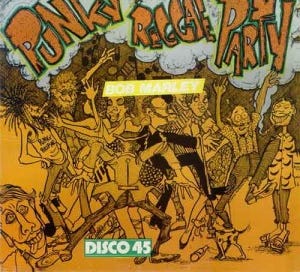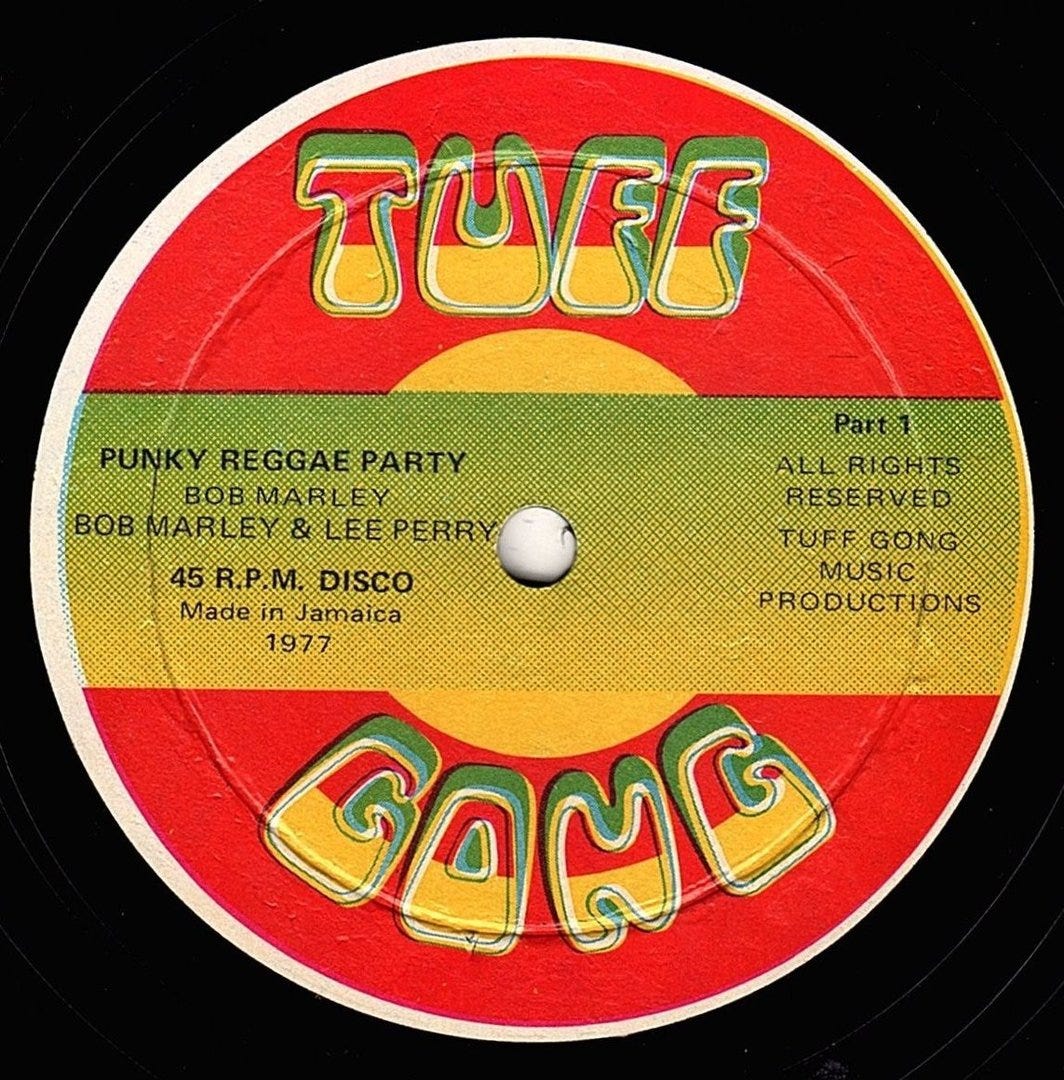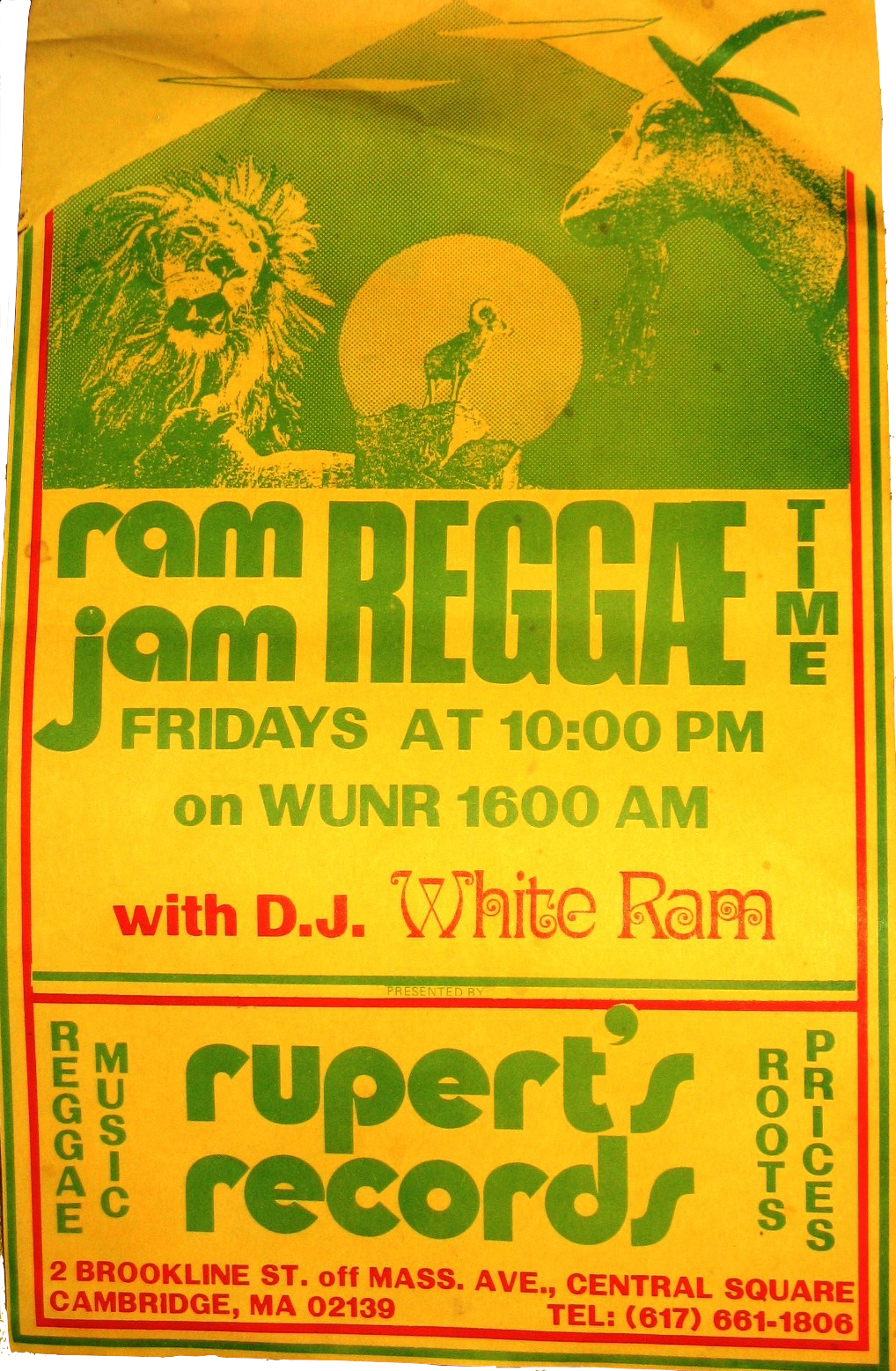“Punky Reggae Party” by BOB MARLEY
In honor of Bob Marley's 77th birthday, a story from 1977, when punk met reggae, and Marley met punk.
Look what just happened: The Best Song Ever (This Week) is now available wherever you listen to podcasts.
Protected by my dignity I search for reality
“Reggae spoke with a currency that the punks could identify. It was the anti-fashion fashion, the rebel stance,” Don Letts wrote in his autobiography There And Black Again, “and importantly, a kind of musical reportage, talking about the things that mattered.” The other connection punk had to reggae was Letts himself. Letts was the house DJ at The Roxy, a London punk club when there were only two punk singles to play; that and his no requests policy meant that other than The Sex Pistols’ “Anarchy in the UK” and “New Rose” by The Damned, any self-respecting punk making the 1977 scene would hear what Letts was into – serious dub reggae. He was also Bob Marley’s weed dealer.
Bob Marley moved to London in December 1976 after a failed attempt on his life. Seven armed men raided his Kingston home while he was rehearsing for the Smile Jamaica Concert. A bullet skidded off Marley’s chest and lodged in his arm; another hit his wife Rita in the head; and his manager was shot in the legs and torso. All survived the attempted assassination. Marley had originally agreed to perform one song at Smile Jamaica on the condition that the concert not be political. Two days after the nation's bloody politics visited his own doorstep, he played a full 90 minute set at National Heroes Park before boarding a plane for London, where he would live for the next year and a half.
“Punky Reggae Party” was recorded in London in June of 1977, not long after the release of Exodus, with Lee “Scratch” Perry producing. Marley is so monumental – a legitimate historical figure of international importance – that his greatness can make it difficult to hear how good he really was. Here, backed not by The Wailers, but by an ace band including members of Third World and ascendent UK reggae group Aswad, plus Sly Dunbar on drums, you hear Bob Marley the singer. He pushes his phrasings and range beyond his famously warm rasp, dipping into a throaty growl before gliding upward. And then, 4:48 in, he starts scatting. His extended vocal solo darts around the fierce groove with jazzy flourishes. It’s remarkable: Marley the musician on full display.
The Wailers will be there
The Damned, The Jam, The Clash
Maytals will be there
Dr. Feelgood too
Ooh!
No boring old farts, no boring old farts, no boring old farts
Will be there
“Punky Reggae Party” is generally considered a (positive) response to The Clash’s cover of Junior Murvin’s “Police and Thieves.” Marley may have been inspired by punk on some abstract artistic level, but the inspiration for his performance was more likely in the studio with him. Perry had produced the Soul Rebels (1970) and Soul Revolution (1971) albums, where he pushed Marley’s music in more spiritual and political directions. Perry was also an innovator, a driving force in the evolution of both reggae and dub. Aswad, meanwhile, had a chip on each shoulder — one from the prevailing if–you’re-not-from-Jamaica-you-aren’t-real attitude that UK reggae bands got at the time, the other from simply being Black in Britain. There’s an urgency to “Punky Reggae Party” that’s different than an anthem like “Exodus.” Where The Wailers’ (seemingly) effortless groove pulls you along like a sci-fi tractor beam, this track prods and propels, its edges more apparent. This feeling that there’s more than one path to freedom is the punkest thing about it.
If Marley was in some way inspired by punk rock, it wasn’t always the case. “What ya deal wid Don Letts dem nasty punk rockers,” Letts1 recalls from the spring of 1977, “you look like a bloodclaat mountaineer!” Letts had shown up with his weed delivery in the bondage trousers2 popular in the punk scene, and Marley was giving him grief. Letts responded to his idol, the man whom he credits with shaping his life, with “dem crazy baldheads are my mates.” He writes that he proceeded to explain the vibrant punk-reggae crossover taking hold across Britain, based on the common ground of “an antipathy to authority and the status quo, combined with a need to find an identity and voice that were not borrowed from anywhere else.”
“Punky Reggae Party” was originally only released as a Jamaican 12” single on Marley’s Tuff Gong and Perry’s Black Art labels and didn’t appear on any studio album. While it’s since been edited and compiled and repackaged, the song stands alone, capturing the excitement of a moment in time. Even at its original single length of 9:19, the song ends suddenly in a wash of reverb, indicating that somewhere, there is a tape where Bob Marley keeps going and going. If only he had.
23 Song Playlist
“Punky Reggae Party” and a brief trip through the punk-reggae crossover, wending through the influences and the influenced.
Boston Reggae Dawn
This piece is entirely indebted to Anthony, who freely offered his deep knowledge of reggae and informed nearly everything here. He also challenged me to write about Bob Marley. His love for this and other music is inspiring. Please check out Reggae Dawn, his website on the history of Boston reggae here.
Here We Go
I didn’t think I wanted to do a podcast, but I definitely wanted to work with two of my favorite guys again, so there’s this. Please download! It would be a huge help and help other like-minded folks fid it. Bonus: You and your friends can play the game of Did He Just Wake Up or Does He Always Sound That Way?
Thank You!
We’re still going. Please keep the rhythm strong by sharing this post with someone who might enjoy it. Or send them a link to a 5 minute podcast to drown out whatever is on the PA at drugstore.
Letts also filmed the scene at The Roxy and became The Clash’s videographer, eventually directing many of their music videos. After the dissolution of The Clash, he co-founded Big Audio Dynamite with Clash guitarist Mick Jones.







Oh yes! I hadn’t heard this in a while - SUCH a killer track. Thank you Scott, for massively improving my morning subway commute!